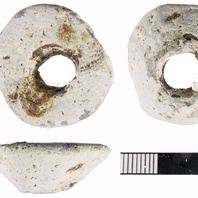
Viking Objects
Lead Spindle-Whorl (NLM-1E7FD8)
This cast lead spindle-whorl is classed as a Walton Rogers A1 type and, due to its mass, it was likely used for spinning yarn. Fibres were spun into thread using a drop-spindle of which the whorls were made of bone, ceramic, lead or stone and acted as flywheels during spinning.
Read More
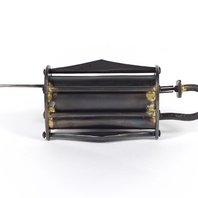
Viking Objects
Reproduction Iron Padlock
Complex metal locks such as this one would have been expensive to manufacture and thus were, generally, used to protect one’s most valuable possessions.
Read More
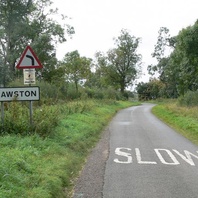
Viking Names
Slawston
Slawston, in the Gartree Hundred of Leicestershire, is an Anglo-Scandinavian hybrid from the Old Norse male personal name Slagr (Middle English genitive singular Slages), which appears to be originally a byname either from slœgr ‘sly, cunning’ or, less likely, from slagr ‘a blow, a stroke’ and the Old English element tun ‘farm, settlement’. This village might have been an Anglian settlement that was appropriated by a Scandinavian from the Viking army which disbanded in the area around 877 rather than a later manorial creation. Slawston is near Blaston, another township with a hybrid Old English/Old Norse place-name which could represent a similar appropriation.
Read More
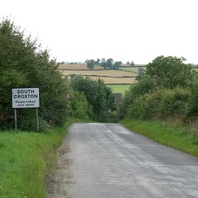
Viking Names
South Croxton
The first element of South Croxton, in the East Goscote Hundred of Leicestershire, likely comes from the Old Danish male personal name Krok (Old Norse Krókr, Middle English genitive singular Crokes), originally a byname meaning ‘crooked-back’, or possibly ‘crooked-dealer’ related to Old Norse krókr ‘hook’. Alternatively the first element could be Old English croc ‘a crook’, that is relating to a location situated in a nook or bend of land. The second element of the place-name is Old English tun ‘an enclosure; a farmstead; a village; an estate’. The Middle English affix suð ‘south’ distinguishes South Croxton from Croxton Kerrial in the Framland Hundred.
Read More
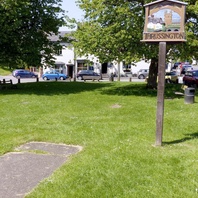
Viking Names
Thrussington
Thrussington, in the East Goscote Hundred of Leicestershire, is an Anglo-Scandinavian hybrid from the common Old Norse male personal name Þorsteinn and Old English tun ‘an enclosure; a farmstead; a village; an estate’.
Read More
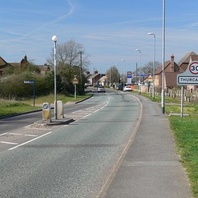
Viking Names
Thurcaston
Thurcaston, in the West Goscote Hundred of Leicestershire, is a hybrid name. The first element comes from the Old Norse male personal name Þorketill, common in Norway, Iceland, Sweden and Denmark throughout the whole of the medieval period and also common in Normandy before 1066. Þorketill is an older version of the Old Norse male personal name Þorkell. The second element is Old English tun ‘farm, settlement’.
